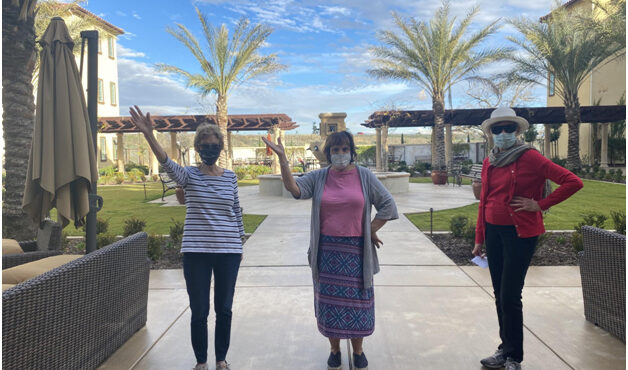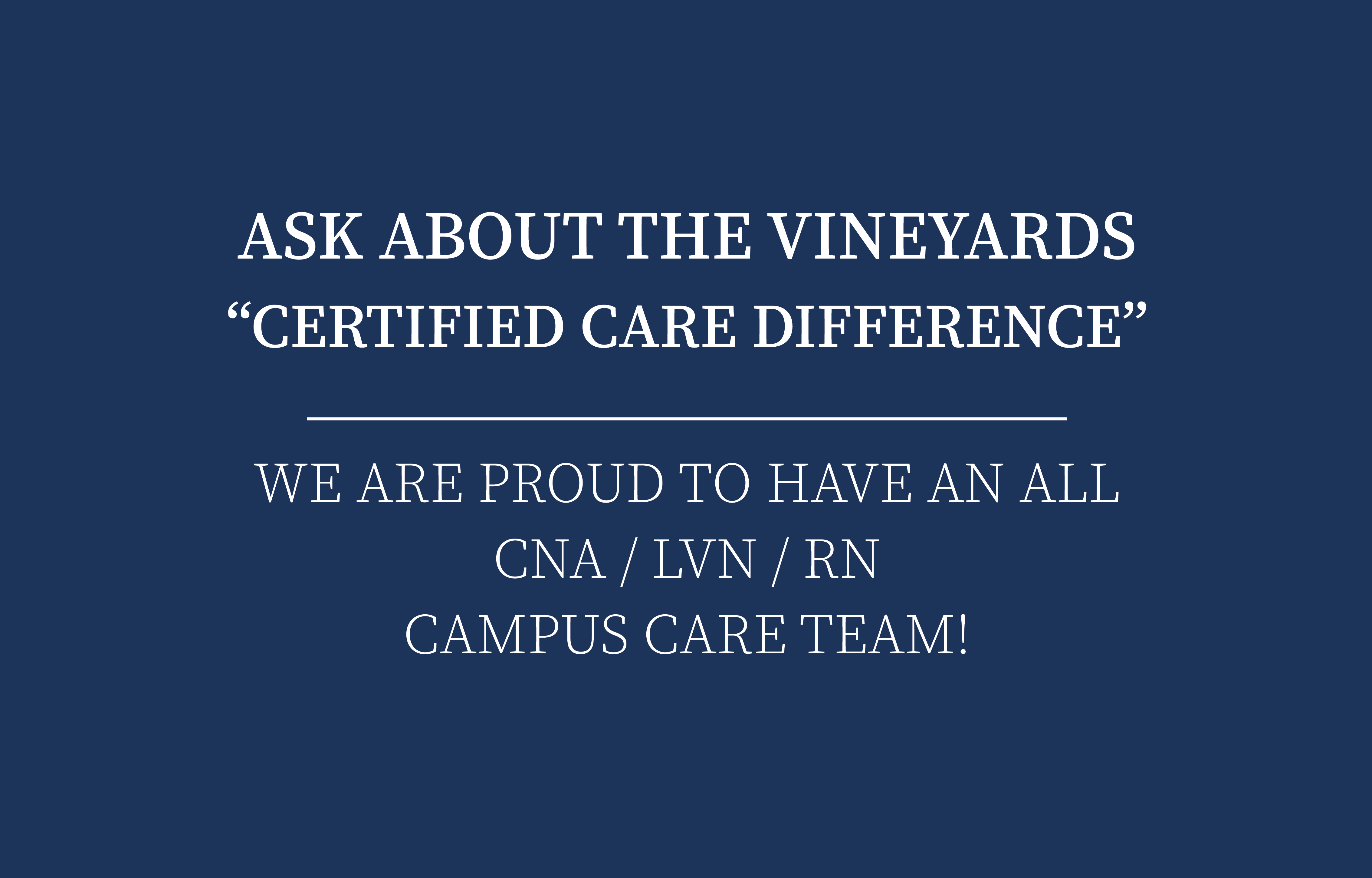
Assisted Living For Seniors -7 Big Questions To Know Why, When, And How
1. What’s It Really Like To Live At An Assisted Living Facility?
Betty and Roy are amazing!
Married for over 60 years, and still living in their two-story ranch home where they raised their kids. Roy still drives the 2008 Subaru to their doctor’s appointments and monthly allergy injections. Betty had a hip replacement a few years ago and got around just fine. Or so she tells her kids.
The sad reality is that they do not use most of their house anymore. They use their master bedroom, bath, TV room, and kitchen… and that’s it.
Extra bedrooms like the formal dining room and front living room are rarely used. The clutter is piling up as is the dust, and taking care of all those surfaces is exhausting. Sometimes they will discuss the inevitable over coffee:
Should they be considering a move to a nearby senior living community?
2. They Perceive Themselves As Very Independent – Do They Need Assisted Living Services?

Let’s take a closer look. Betty does not wear her favorite necklace anymore because the clasp is too difficult to manage. Roy does not wear his beloved watch for the same reason. Both opt for slip-on shoes rather than a more stable type of athletic shoe because the laces are too difficult to reach and tie.
Shopping for groceries is a hassle and standing up in the kitchen to prepare a full meal is becoming more difficult. Opting for frozen dinners and ready-made snacks has become the norm.
There have been a few times now that the little pill boxes for the daily regiment have been jostled, and a few pills get bounced out so the daily dosages may have been affected. Nothing bad has happened. Yet.
Can An Assisted Living Solve All Of Those Problems?
Assisted Living includes help with grooming, as the jewelry issues. Dressing, tying shoes, medication management to prevent over or under-dose, as well as personal hygiene and mobility support.
When Is A Good Moment To Think About It?
Most likely now would be a good time if you are over 62 or have loved ones over the age of 62.
3. How Do You Know If Your Parents Need Help?

Pay Attention To The Mail, Fridge, And Kitchen
Do you notice that the unopened mail is piling up? This could be due to failing eyesight which also hampers writing abilities and causes legibility issues. Managing the checking account, opening, sorting, and paying bills is just too much.
Perhaps there is spoiled or uneaten food in the fridge or the pantry. This could be a sign that shopping, cooking, and cleaning are too much trouble.
Diminished eyesight or sense of taste or smell leads to loss of interest. Ant this may be worse if they have any difficulty with chewing or swallowing.
And let us face it! When we are living alone, sometimes it’s just not worth it to prepare a well-balanced meal. You can try to help them with this by moving pantry items or the microwave within reach.
Take a peek at their pots and pans the next time you visit. Are they scorched? This can be a sign of forgetfulness while cooking and over-all short-term memory loss.
Is Their Home Uncharacteristically Cluttered Or Messy?

This can be especially troubling when the parent has always been neat and tidy. Sometimes it could be an underlying condition like arthritis that is causing pain. It is too difficult to organize or put things away.
It can be hard to decide what to do with things. This too can be a symptom of depression or a more serious condition. Simplify as much as possible. Hire someone to help with cleaning and organizing.
Are They Living Under Any Dangerous Conditions? (Slippery Floors, Throw Rugs, Clutter On Stairs)
Perhaps you have noticed their hygiene has slipped. There could be fear of falling in the tub or shower that is quite real.
Sorting laundry, washing, drying, and folding, or hanging can become a challenge. Especially if the closet is not well lit and their poor eyesight is an issue.
The lack of interest in appearance can be due to less social interaction and companionship. Identify physical barriers, as these can be an easy fix. Consider velcro zipper-pullers and easy-fitting clothes. Could there be someone to help with laundry or with grooming?
Make sure to take these changes seriously as they could be symptoms of a more serious condition or illness.
Could They Be Suffering From Memory Loss Or Depression?

Forgetting to take medications is common and can be quite dangerous. This can be a warning sign for short-term memory loss, depression, or confusion. Depression is different than just feeling blue.
Can you identify the causes?
- Is your loved one homebound and not interested in activities that used to bring them joy and life satisfaction?
- Have they lost their friends, so the isolation has become even more real?
Consider a psychiatric evaluation. And take a look at the possibility of medication interactions or side effects.
Are Your Loved Ones Missing Appointments?
Have they missed multiple doctors’ appointments?
This can be a transportation issue, short-term memory loss, lack of organization, or just an overall lack of interest and depression.
Are you receiving calls from them at odd hours?
Perhaps because they are disoriented and not sure of the time of day or night. This can also be a cry for help as they battle isolation and depression.
Do You Have Any Suspicion They Have Had A Fall?

Seniors often neglect to mention that they have had a fall. Be sure to ask. Falls can be caused by medication side effects. Physical weakness or gait disturbance is also a factor. Look for the obvious too around the home.
Are there loose throw rugs?
Is the lighting sufficient or is it cozy, aka poorly lit? Be sure the floor surfaces are even and not slippery.
How can you help with frequent falls?
Schedule a complete physical and medication review with the primary physician. Be sure there are not multiple medical professionals providing prescriptions that may be interacting. Check the home for safety and make immediate changes. Speak with the appropriate medical professional about physical therapy.
4. Should I Consider Anything Else Before Deciding?
Pay attention to unusual appearance or behavior
- Could they be confused about the season or the weather?
- Do they not recognize friends and neighbors?
- Is this a single occurrence or frequent behavior?
- Is this a marked departure from typical behavior?
- Consult with their physician and consider a psychiatric evaluation. Be sure prescribed medication is being taken correctly. Could they be suffering from a urinary tract Infection?
5. How To Talk To My Parents About Assisted Living?

The most important next step is to talk with your parents or loved ones. Discuss what tasks are hard or painful for them to do. How are they sleeping? What are their sleeping patterns? Are they experiencing fatigue? Are there any risky behaviors that need to be addressed? Has there been a loss of appetite? What are their concerns and fears? Finances? Dementia?
If the idea of having a frank, one-on-one discussion with a parent is too difficult, consider asking the physician or clergy to assist with the conversation. This brings us back to who pays for Assisted Living if it is indeed needed for a senior citizen.
What Assisted Living Can Do For Them?
Assisted Living is a term that is used by Residential Care Facilities, home care companies, and long-term insurance plans. In plain English: Assisted Living is recommended for people who need assistance with their activities of daily living.
The great majority of Residential Care Facilities for the Elderly accept private payment for the month-to-month rent and care plan fees.
This can be paid out of standard savings, from the proceeds of selling a home, through a long-term care insurance policy, or from the Veteran’s benefit of Air and Assistance.
6. What’s The Cost Of Assisted Living?

The average cost for Assisted Living is $2500-$7000 per month. This includes an apartment, utilities, three meals, and two snacks each day, laundry and housekeeping, activities, and scheduled transportation.
Assisted Living Facilities are continuing to be built. Depending on what level of care your loved one needs, assisted living can be much more affordable than long-term in-home care or nursing home care.
All Residential Care Facilities for the Elderly offer similar services. At least they look similar on paper. Research by visiting potential facilities. Ask about the rent cost and also the level of care plan costs that are charged separately, depending on the number of hands a person requires.
The costs will vary from facility to facility. Some use a point system, and some use a few levels of care. If a resident does not need any assistance with the activities of daily living, they would be considered Independent Living.
What Does The Process Look Like?
A Physician’s Report is used to start the process and then an in-person assessment would be scheduled. The facility representative would be looking at specific activities.
For example, when it comes to bathing, they would be asking if the person needed help to bathe or shower? How often does the person bathe? How often do they require help? Is it stand by or hands-on? Most seniors do not benefit from daily bathing as their skin tends to become thinner and drier. If a person likes to shower daily and requires assistance, it would be more expensive than a once-a-week preference.
The same principles apply to grooming needs, mobility issues, incontinence, medication management, laundry requirements, and eating. Time equals money.
7. How Do People Pay For Assisted Living?

Va Aid And Attendance Eligibility
You may be eligible for this benefit if you get a VA pension and you meet at least one of the requirements listed below. At least one of these must be true:
- You need another person to help you perform daily activities, like bathing, feeding, and dressing, or
- You have to stay in bed—or spend a large portion of the day in bed—because of illness, or
- You are a patient in a nursing home due to the loss of mental or physical abilities related to a disability, or
- Your eyesight is limited (even with glasses or contact lenses you have only 5/200 or less in both eyes, or concentric contraction of the visual field to 5 degrees or less)
- Housebound benefits eligibility
You may be eligible for this benefit if you get a VA pension and you spend most of your time in your home because of a permanent disability (a disability that does not go away).
Note: You can’t get Aid and Attendance benefits and Housebound benefits at the same time.
Benefit Table
- Status Monthly Benefit
- Surviving Spouse $1,244 Monthly / $14,928 Annually
- Single Veteran $1,936 Monthly / $23,232 Annually
- Married Veteran $2,295 Monthly / $27,540 Annually
- Two Vets Married $3,071 Monthly / $36,852 Annually
- Tax-Free long-term
Under current law, the following wartime periods are considered to decide eligibility for VA pension benefits:
- Mexican Border period (May 9, 1916, to April 5, 1917, for Veterans who served in Mexico, on its borders, or in adjacent waters)
- World War I (April 6, 1917, to November 11, 1918)
- World War II (December 7, 1941, to December 31, 1946)
- Korean conflict (June 27, 1950, to January 31, 1955)
- Vietnam War era (February 28, 1961, to May 7, 1975, for Veterans who served in the Republic of Vietnam during that period. August 5, 1964, to May 7, 1975, for Veterans who served outside the Republic of Vietnam.)
- Gulf War (August 2, 1990, through a future date to be set by law or presidential proclamation)
Life Insurance Policy

Life Insurance is also used to pay for Assisted Living. Policies vary but some do offer a life insurance conversion program that allows seniors to convert their policy into long-term care payments.
A conversion such as this will pay less than a typical life insurance settlement. Of course, most folks are thinking of their beneficiaries when they take out a life insurance plan but there are other options such as selling the plan to a third-party company that in return provides the policyholder with a senior or life settlement which is 50%-75% of the original face value.
Working with a geriatric care manager may be helpful if the family is considering combining resources to help with the matriarch or patriarch of the family. They can help to navigate the options for siblings to divide up the hands-on care vs. the monetary care.
Are they one of the fortunate few that purchased long-term care insurance? Congratulations! The policy does vary, some were written so long ago the concept of Assisted Living as we enjoy it in modern times did not even exist. The language may refer to nursing home care, or have specific diagnoses listed to be covered or excluded. It is helpful to read over the policy in full and connect with the company before needing it.
There are annuities available and they can be quite complicated. Talk to a trusted financial advisor. Reverse mortgages fall under the same umbrella. Be sure you invest time to research the benefits and the pitfalls of a reverse mortgage.
Rent Their House Instead Of Selling It
Another option is to rent out the home rather than selling it or entering a reverse mortgage. A rental company can take the day-to-day burden off the family’s shoulders. The focus can then be on a better quality of life for everyone.
Conclusion

A better quality of life is the priority when researching assisted living options for your parents or loved ones. Keep that and the “Six R’s in mind: Do the right thing, for the right reason, with the right people, at the right time. and you will not have regrets for the rest of your life.


